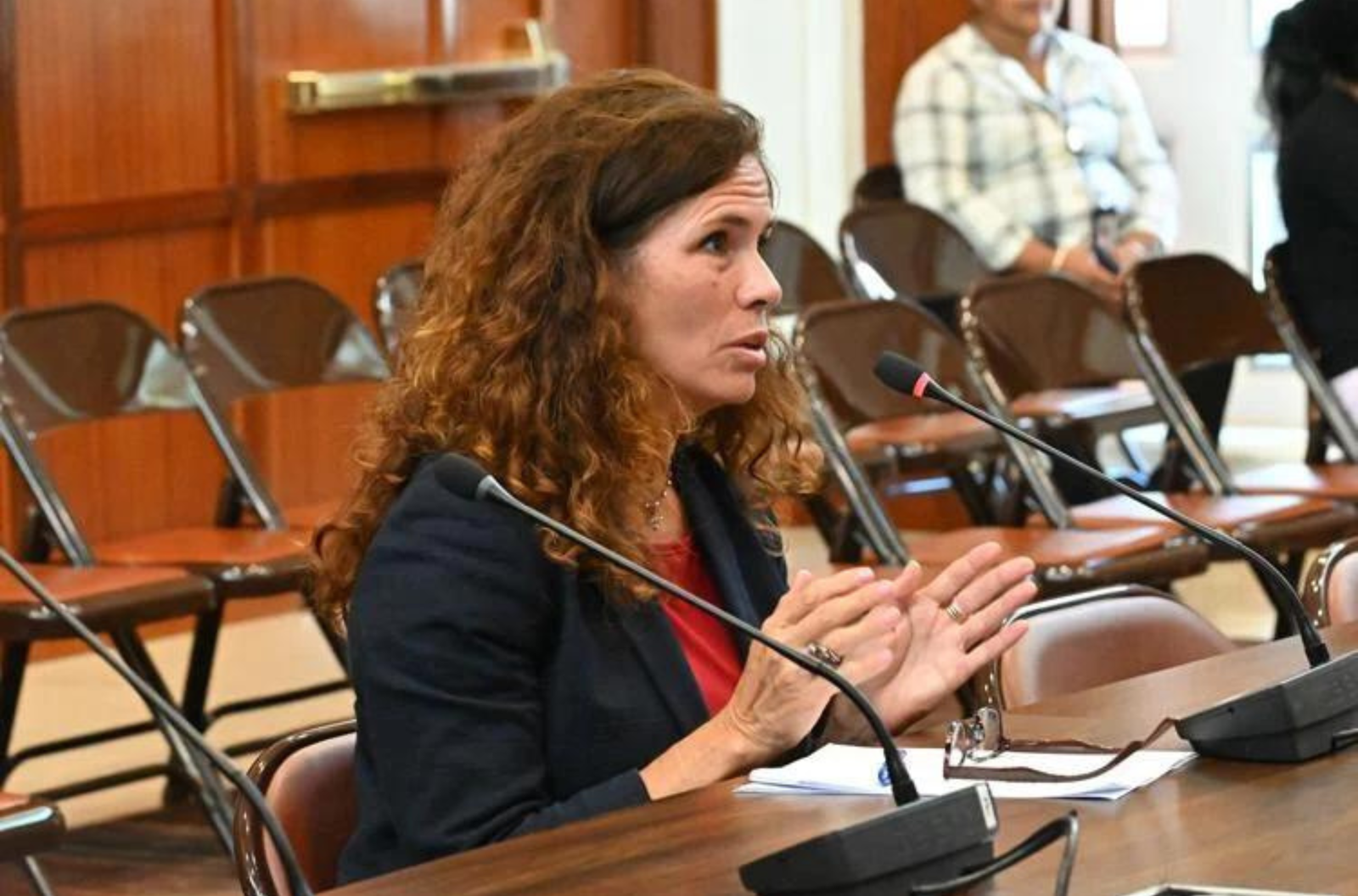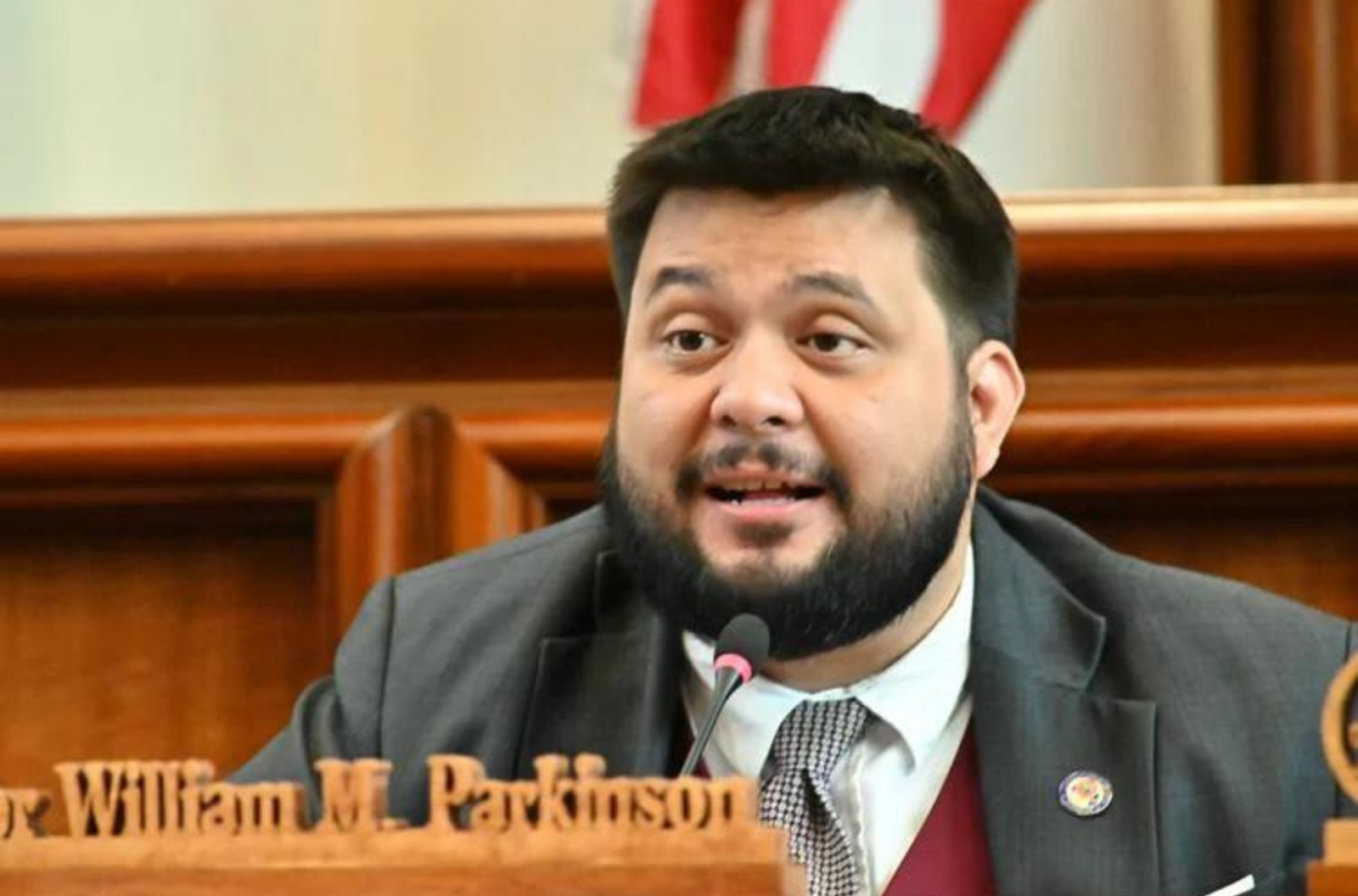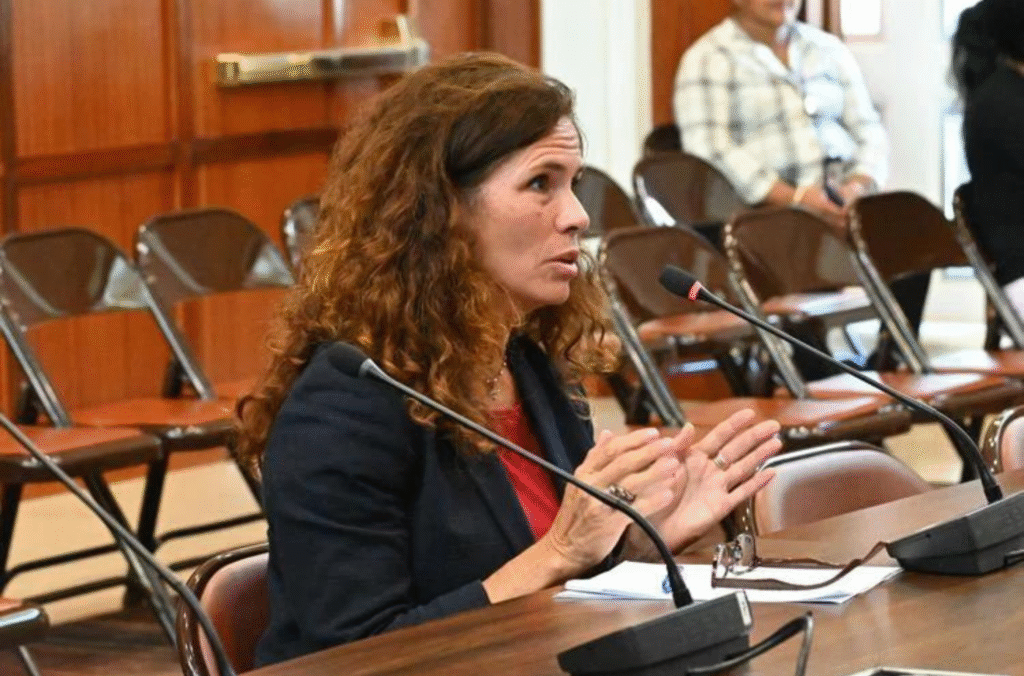HAGÅTÑA (The Guam Daily Post) — On Monday, lawmakers heard testimony on Bill 132-37 a measure that would make it a felony to maliciously tear down, damage, mutilate or destroy any property belonging to the government of Guam during public emergencies.
It’s not a measure that Sen. William Parkinson, who introduced the bill, said he’s particularly proud of having to introduce.
“It breaks my heart that it has to be introduced,” Parkinson said. “I hope with this law we send a clear message to the community that, in times of emergency, this mischief will not be tolerated. I worked many years as a frontline worker during emergencies and it would have been disastrous to be an emergency worker and have critical equipment fail when you didn’t need it to be failing. And I don’t ever want to get to that position. So, we will nip this in the bud.”
Through written testimony, lawmakers heard from Esther Aguigui, the acting Guam Homeland Security adviser to Gov. Lou Leon Guerrero, that her office took no position on the bill and, to date, no executive departments or agencies, including Homeland and the Office of Civil Defense, have reported intentional vandalism or destruction of property that may adversely impact operations and recovery.
However, Heather Zona, the acting chief prosecutor for the Office of the Attorney General, said it has received reports of people damaging electrical poles and stealing electrical wire.
Parkinson said the majority of the vandalism was done to the Guam Power Authority and Guam Waterworks Authority.
Theft and vandalism
Both utilities have publicly stated theft and vandalism of their properties and assets were taking place as they worked to restore services after Typhoon Mawar.
Parkinson said at the outset of the hearing that he introduced Bill 132 after learning GWA water wells were vandalized shortly after Mawar ripped through Guam. The head of GPA informed him that five GWA water tanks providing potable water after the typhoon were vandalized, the senator added.
Parkinson said taking part in such behavior when the island is recovering from a disaster is criminal and anyone getting in the way of protecting critical infrastructure for recovery should be punished.
Other lawmakers levied criticism or disappointment with residents engaging in vandalism or theft while recovery is underway. Sen. Joanne Brown had no objections to the bill but said it was unfortunate that lawmakers have to send this message.
“It’s another reminder (that) we’re almost the land of the lawless. We have our own people, our own residents, that are unfortunately committing these crimes against their own neighbors. That’s not desirable, especially when there is such a need after a storm to recover,” Brown said.
Sen. Roy Quinata said he supported Bill 132 but noted overcrowding issues and other concerns facing the Department of Corrections, adding the bill could lead to more imprisonment. At the same time, Quinata said, it was unfortunate that such legislation needed to be implemented “to deal with idiots out there.”
AG suggests changes
Zona said her office supported imposing criminal penalties on people who destroy public property, particularly at times of emergencies. Zona also offered some changes to Bill 132, stating the timeframe for the bill should extend to 90 days after the declared end of an emergency.
‘While criminals can destroy property during the actual typhoon, for example, it would appear that a majority of crimes often occur when criminals take advantage of circumstances created during times of emergencies,” Zona said.
She added the AG’s office also believes the bill should be more robust by including government property misused, misappropriated or even stolen during declared emergencies and for 90 days after the end of the emergency.
“The (Office of the Attorney General) is particularly concerned that what otherwise would be misused or misappropriated government property would somehow go unpunished during emergencies,” Zona said.
Zona also encouraged the drafting of a bill to create additional penalties for any crimes committed during declared emergencies and for 90 days following the end of the emergency.
Zona said at the hearing that family violence and drug use, in general, tend to increase during emergencies. Property theft and crimes of opportunity tend to go up as well, she added.
To Aguigui’s statement about having received no reports of vandalism or destruction of property that could hurt recovery efforts, Zona said it would be difficult to work with the law if the crime is linked to actions that impair recovery efforts.
“I’m not even sure how we define that. … Are we going to say that simply because somebody is going to have to take a vehicle out of commission for half a day to fix something, is that enough to say that it impaired recovery efforts? … I think that that’s not really workable,” Zona said.
She also said that all crimes considered by Bill 132 already can be punished under the criminal mischief statute, theft and other existing laws.
“We do believe that, regardless, people who commit crimes should be punished,” Zona said.

Office of the Attorney General acting Chief Prosecutor Heather Zona testifies in support of Bill 132-37 during a public hearing Monday at the Guam Congress Building in Hagåtña. David Castro/The Guam Daily Post

Sen. William Parkinson introduces Bill 132-37 during a public hearing Monday, July 10, 2023, at the Guam Congress Building in Hagåtña.











